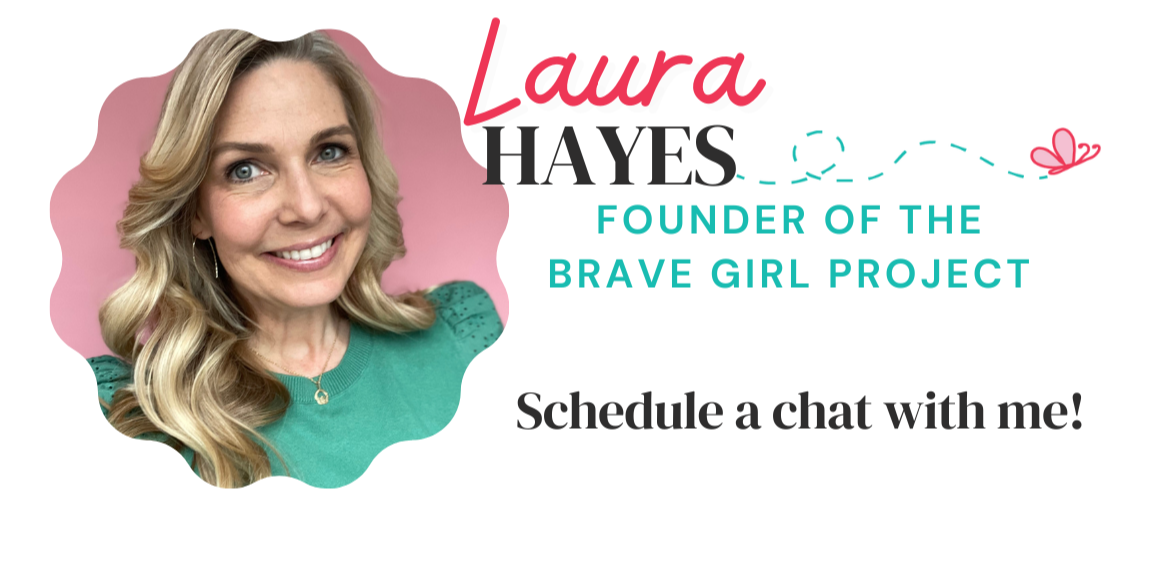Parenting Through Friendship Struggles: Signs to Watch For
Feb 19, 2024
I understand firsthand the challenges of supporting our daughters through rejection, friendship drama, and their journey to find their people.
Research indicates that parents often experience their children's emotions deeply, which can be especially true when daughters face friendship challenges. It's exhausting to help your daughter navigate school, friendships, and the complexities of social dynamics. Feeling a mix of anxiety, stress, worry, and heartache is natural when you see your daughter struggling to fit in or find her way.
Research also suggests that parents have a strong instinct to protect their children from harm, including emotional pain. When we witness our daughters grappling with friendship issues, we may feel a strong urge to step in and solve the problem, even though we know it's not always possible. This can lead to feelings of frustration and helplessness.
In moments like these, it's important to remember that you're not alone. Many parents are facing similar challenges and emotions. Seeking support and guidance, both for yourself and for your daughter, is not a sign of weakness—it's a sign of strength and love.
Signs Parents Should Pay Attention To
Step 1: Recognize Your Emotional Responses: Notice if you're feeling overwhelmed, anxious, or stressed when your daughter is facing friendship challenges. Your emotional reactions can be a signal that you might need support.
Step 2: Pay Attention to Changes in Your Behavior: Be mindful of any changes in your behavior, such as increased irritability, mood swings, or withdrawing from social interactions. These could indicate that you're struggling to cope with your daughter's stressors.
Step 3: Monitor Your Physical Symptoms: Pay attention to any physical symptoms you may experience, like headaches, stomachaches, or muscle tension, which can be a sign of stress.
Step 4: Notice Negative Thought Patterns: Be aware of any negative thought patterns, such as constant worrying or feeling helpless, that may arise when you're dealing with your daughter's friendship problems.
Step 5: Reflect on Your Coping Mechanisms: Reflect on how you're coping with your own stress in response to your daughter's challenges. Are you using healthy coping strategies, or are you turning to unhealthy behaviors like overeating or excessive drinking?
Step 6: Consider Your Support System: Take note of your support system and whether you're reaching out to others for help and support during this challenging time.
Step 7: Evaluate Your Parenting Role: Reflect on how your role as a parent is impacting your stress levels. Are you putting too much pressure on yourself to solve your daughter's problems?
Step 8: Assess Your Self-Care Practices: Evaluate how well you're taking care of yourself physically, emotionally, and mentally. Are you prioritizing your own needs, or are you neglecting them in favor of focusing solely on your daughter?
Step 9: Recognize the Impact on Your Relationships: Consider how your stress is affecting your relationships with others, including your spouse, other children, or friends.
Step 10: Seek Help When Needed: If you find that you're overwhelmed by your daughter's stressors and are struggling to cope, it's important to seek help from a mental health professional who can provide you with support and guidance.
The resource for you and your daughter.
Supporting Your Daughter Through Friendship Challenges Toolkit.
1. Supporting Your Daughter Through Friendship Challenges:
A step-by-step guide for parents to understand and navigate their own reactions, validate their daughter's experiences, and provide effective support.
2. Parental Guidance Flowchart:
A flowchart to help parents decide whether to reach out to the parents of the other child when their daughter is facing difficulties, emphasizing thoughtful and respectful communication.
3. Flow of Friendship:
A tool tailored for younger girls to evaluate their friendships, encouraging self-reflection and a deeper understanding of the dynamics in their social circles.
4. Healthy Friendship vs. Unhealthy Friendship Quiz:
Specifically designed for older girls, this quiz prompts self-reflection on the qualities of positive and negative friendships, fostering awareness and promoting healthy choices.
5. Conflict Iceberg:
Dive beneath the surface of conflicts with the Conflict Iceberg tool. Explore the feelings and emotions that may be hidden below, providing a deeper understanding of the root causes of friendship challenges.
If your daughter is feeling overwhelmed, left out, or unsure of herself during this season, she doesn’t have to go through it alone — and neither do you.
At The Brave Girl Project, we offer support to help girls build confidence, manage friendships, and handle the emotional ups and downs of growing up — with real tools that work.
✨ The Brave Girl Tribe (for girls in 5th–8th grade) meet weekly
✨ The High School Support Group (for girls in 9th–12th grade) meet bi-weekly
Both groups provide coaching, connection, and community — all in a safe, supportive space where girls feel heard, understood, and empowered.
Your daughter is invited to join us as a guest for an upcoming session!
👉 Click here to sign up your high school daughter as a guest in the High School Support Group
👉 Click here to sign up your middle school daughter as a guest in the Brave Girl Tribe
We’d love to welcome her and show her what it’s like to feel supported, confident, and seen — exactly as she is.
Looking for More Support?
If Your Daughter Is Struggling With Friends, Don’t Wait Until It Gets Worse.
Beyond The Drama
A Parent's Guide To Supporting
Your Daughter Through Friendship Challenges
- Gain Deep Insights: Understand the psychological and social factors that influence friendship issues among girls.
- Become a Supportive Listener: Learn how to effectively listen and advise your daughter during challenging times.
- Practical Strategies: Acquire actionable strategies to help your daughter navigate relational aggression and bullying.
- Empower Your Daughter: Teach her to proactively handle friendship challenges with confidence.
Remember, you and your daughter are not alone!
Warmly,
Laura Hayes
Founder of The Brave Girl Project
Life Coach for Tween & Teen Girls
www.TheBraveGirlProject.com
[email protected]
Instagram
Facebook





